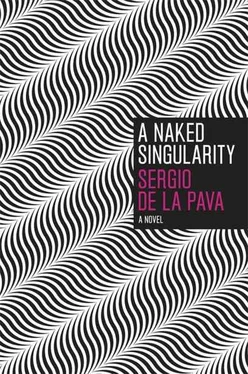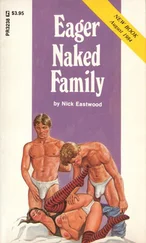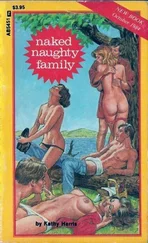Sergio De La Pava - A Naked Singularity
Здесь есть возможность читать онлайн «Sergio De La Pava - A Naked Singularity» весь текст электронной книги совершенно бесплатно (целиком полную версию без сокращений). В некоторых случаях можно слушать аудио, скачать через торрент в формате fb2 и присутствует краткое содержание. Год выпуска: 2012, Издательство: University of Chicago Press, Жанр: Современная проза, на английском языке. Описание произведения, (предисловие) а так же отзывы посетителей доступны на портале библиотеки ЛибКат.
- Название:A Naked Singularity
- Автор:
- Издательство:University of Chicago Press
- Жанр:
- Год:2012
- ISBN:нет данных
- Рейтинг книги:5 / 5. Голосов: 1
-
Избранное:Добавить в избранное
- Отзывы:
-
Ваша оценка:
- 100
- 1
- 2
- 3
- 4
- 5
A Naked Singularity: краткое содержание, описание и аннотация
Предлагаем к чтению аннотацию, описание, краткое содержание или предисловие (зависит от того, что написал сам автор книги «A Naked Singularity»). Если вы не нашли необходимую информацию о книге — напишите в комментариях, мы постараемся отыскать её.
Infinite Jest
A Naked Singularity
A Frolic of His Own
A Naked Singularity
A Naked Singularity — читать онлайн бесплатно полную книгу (весь текст) целиком
Ниже представлен текст книги, разбитый по страницам. Система сохранения места последней прочитанной страницы, позволяет с удобством читать онлайн бесплатно книгу «A Naked Singularity», без необходимости каждый раз заново искать на чём Вы остановились. Поставьте закладку, и сможете в любой момент перейти на страницу, на которой закончили чтение.
Интервал:
Закладка:
I think Wilfred Benitez liked that backyard ring more than his brothers. But he wasn’t better than them because he liked the ring more, rather he liked the ring more because he was better. The ring gave him something it couldn’t give the others. And not because of Goyo or because of Wilfred’s overwhelming effort. Not in this case.
The ability to hit and avoid being hit swirls around in the air, unattached and looking for a home. A little lands here, a little there. More here, less there, and an in-between amount elsewhere, all in an unpredictable dance of musical chairs. For whatever reason, a whole damn lot landed on Wilfred Benitez and beginning in 1965 you could see for yourself, and over the years many did, in that San Just yard. Those who saw, knew , and more gratifyingly Wilfred knew.
In the ring he knew what you were going to throw, from where and at what angle, seemingly before you did. A brilliant counterpuncher, he also knew you were going to pay for that punch. And after a while you knew it too and so became reluctant to expose yourself by throwing any more punches, a bad reluctance to have in boxing.
Outside of the ring he knew far less. When he wasn’t inhaling boxing, Wilfred exhaled it. School was only a mandatory respite from boxing so he stopped going after junior high. Later, multiple observers would comment on the childlike behavior that emanated from this unmistakably adult body and the difficulty he seemed to have emoting and processing complex thoughts. It was better those days when his mind matched his number and best when it was on that canvas, between those ropes, making instantaneous decisions that were never wrong.
Wilfred boxed every day. Every day of his life he threw punches. A left jab should shoot straight out from a rapid shoulder twitch. The straighter and stiffer the better. A good left hook, the kind any self-respecting Hispanic boxer aspires to throw, and the kind that serves as a perfectly appropriate counter to failed lead rights, ideally involves, whenever possible, a violently sudden hip twist. Uppercuts with each hand had to be learned in order to build the brilliant infighter. Overhand rights, right crosses, proper footwork, cutting off the ring and leaving it expansive. Fighting off the ropes, a future specialty, and in the lonely, contested middle. Every day for hour upon hour until the muscles remembered on their own. All this and the only real injury he received during this time occurred when he got his face tangled in barbed wire while chasing another boy near his house; the jagged scar raising from his nose to his jaw and always visible throughout his later career. He fought and learned: learned to fight. That was everything.
And Wilfred still only fifteen.
So there are finally those things that can only be learned by facing other lunatics who started boxing at seven or so years old. After 111 amateur bouts, Wilfred turned pro and had his first official fight on November 22, 1973, seventy days after his fifteenth birthday.
His first opponent owned the unlikely name of Hiram Santiago. The fight took place in Puerto Rico and was a junior-lightweight contest, meaning neither fighter weighed more than 130 pounds. The 130 pounds belonging to Santiago heard the bell signaling the start of the fight but never heard one declaring the end of the first round. Before that second bell could sound, Benitez, who would not later be known for his punching power, separated Santiago from his senses, from his ability to stand upright. The first-round knockout was not a contest; it was not a test in any meaningful way nor really any kind of learning experience. What it was was a confirmation. Hiram Santiago started to confirm what others thought they had seen in that backyard ring. Further confirmation came a mere eight days later in St. Martin against Jesse Torres. Torres lasted until the second round before getting knocked out.
After knocking out his next three opponents in a total of ten rounds, the fifteen-year-old must have felt as if his hands were made of stone. Then Benitez fought Victor Mangual in Puerto Rico. On April Fool’s Day 1974, Victor Mangual, despite being thoroughly outclassed and losing every round, became the first opponent to go the distance against Benitez. The eight-round fight was a necessary learning experience for a fighter who would later establish his greatness principally by outboxing his opponents not stopping them; although there were still plenty more knockouts to follow including one in the third round against Juan Disla later that month.
Enter the inimitable “Easy Boy” Lake. Benitez easily knocked out Lake in the first round on May 11, 1974, but it must have been the most compelling, competitive first-round knockout in boxing history because the public apparently clamored for a rematch and three months later, after three more Benitez knockout victories, they got one. “Easy Boy” entered the rematch an enthused fighter. He vowed not to repeat the pugilistic mistakes made three months earlier. This time, he thought, he was armed with valuable insight he had gained on his back. What’s more, he was a quantifiably better fighter now. Five times better it turns out, as he lasted until the fifth round this time before again being knocked out. (The Easy Boy Lake career would not be a stellar one, not helped, surely, by the fact that three of his first four fights were against Benitez.)
Goyo kept Benitez busy. After Lake, he fought three more times in 1974 for a total of twelve fights that year, all wins. The following year was almost as busy with Benitez adding eleven more victories in as many fights. After beating Marcelino Alicia on September 1, 1975, by second-round knockout, Benitez’s professional record stood at 23-0 with 19 knockouts. He was every minute of sixteen years old.
What was it like to oppose Benitez those days? Benitez was the worst kind of opponent because he made you feel primarily the futility of your effort. His nickname was the “Bible of Boxing” because all his punches were technically perfect. His other nickname was “Radar” and that was the real problem for his opponents. Getting punched in the face makes you want to punch the person back. Problem was you couldn’t hit Benitez. His reflexes were otherworldly and he was a heavenly counterpuncher. When you miss a punch you leave yourself open. Against Benitez all you did was miss punches and all he did was tag you in response. He had tremendous hand speed with scientific accuracy. Along with his reflexes, he was equipped with other tremendous defensive skills, even at sixteen. You wanted to think, in the ring and elsewhere, that the more effort you expend the more successful you’ll be, that hard work rewards itself. But against Benitez the opposite was true. The more punches you threw the more you got hit with nothing to show for it. You were prepared to give a great effort and you did, but here was this sixteen-year-old punk calmly channeling inexplicable ability to severely punish your effort. Except for a nagging tendency to skimp a bit in training and a lack of overwhelming power, an expected consequence of that kind of slick hand speed, Wilfred Benitez appeared to be a boxer without weakness.
Of course the deck was stacked. Benitez may have been only sixteen but he was a future Hall of Fame boxer. His opponents through 1975 were just that, opponents. The question was no longer whether Benitez was a special boxer. At any given time there are about a hundred boxers in the world who fit that description. The relevant question was whether Benitez was special even when viewed within that pool of humans. Goyo and Wilfred decided to find out.
Benitez had gotten physically bigger during his two-year career. He was now fighting at junior-welterweight with its weight limit of 140 pounds, ten pounds heavier than when he started. That weight division was ruled by one man. The Junior Welterweight Champion of the World was a Colombian fighter named Antonio “Pambele” Cervantes. Cervantes was a dominant champion and a national hero to Colombians. After becoming champion in 1972, he had made fifteen successful title defenses scoring twelve knockouts. Champions want, principally, to remain champion, but the great ones also want to be challenged. Cervantes decided that his next defense would come against Benitez on March 6, 1976, in San Juan’s Hiram Bithorn Baseball Stadium.
Читать дальшеИнтервал:
Закладка:
Похожие книги на «A Naked Singularity»
Представляем Вашему вниманию похожие книги на «A Naked Singularity» списком для выбора. Мы отобрали схожую по названию и смыслу литературу в надежде предоставить читателям больше вариантов отыскать новые, интересные, ещё непрочитанные произведения.
Обсуждение, отзывы о книге «A Naked Singularity» и просто собственные мнения читателей. Оставьте ваши комментарии, напишите, что Вы думаете о произведении, его смысле или главных героях. Укажите что конкретно понравилось, а что нет, и почему Вы так считаете.












